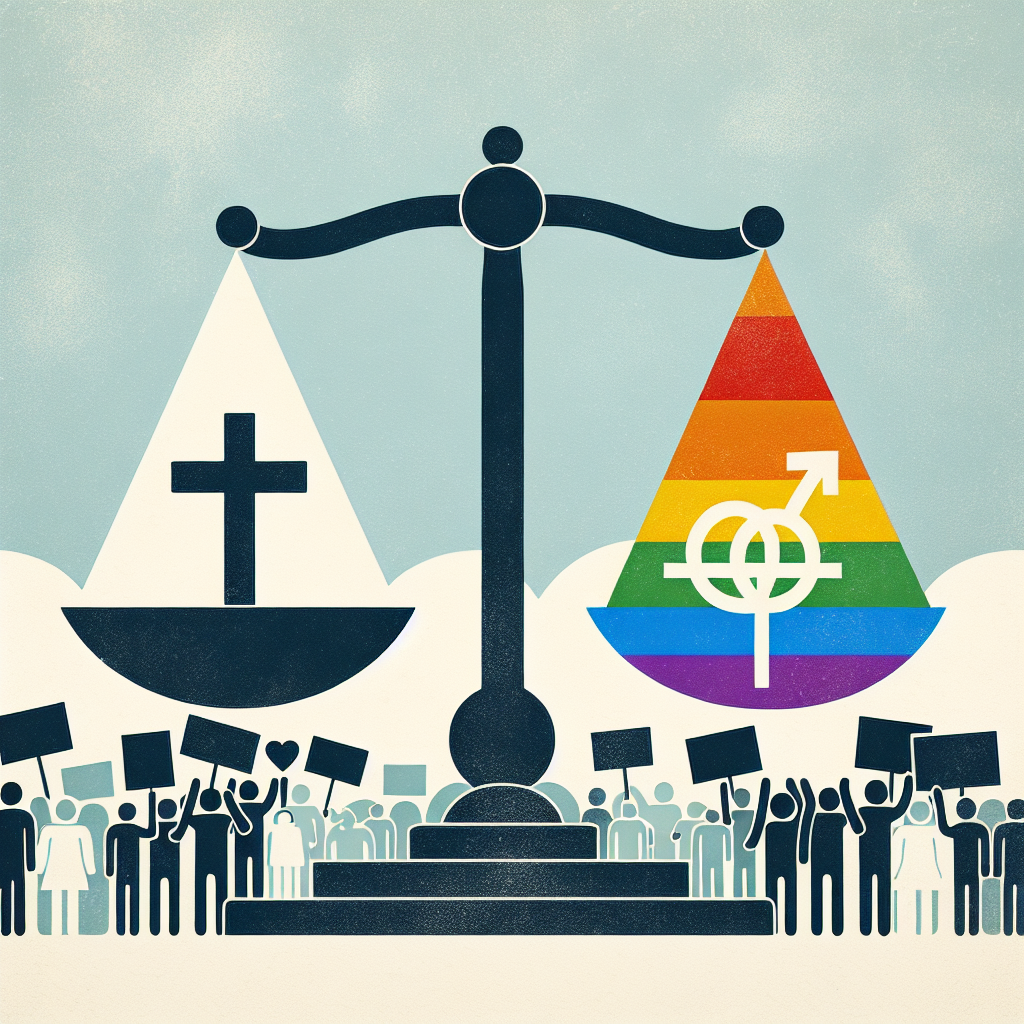The debate surrounding LGBTQ rights within the Christian community has been a source of great controversy for many years. While some Christians believe in accepting and supporting the LGBTQ community, others argue that homosexuality is a sin according to their religious beliefs.
At the core of this debate is the interpretation of biblical scripture. Some Christians point to verses in the Bible that condemn homosexuality, such as Leviticus 18:22 which states, “You shall not lie with a male as with a woman; it is an abomination.” Others argue that these verses are outdated and need to be reinterpreted in a modern context.
Many progressive Christians believe that Jesus’ message of love and acceptance should be extended to all individuals, regardless of their sexual orientation. They advocate for LGBTQ rights, including marriage equality and anti-discrimination laws, on the basis of this belief. Some churches have even begun to perform same-sex marriage ceremonies and welcome LGBTQ members into their congregation with open arms.
However, conservative Christians argue that accepting homosexuality goes against the teachings of the Bible and is a sin that should not be condoned. They believe that marriage should be between one man and one woman, as stated in Genesis 2:24. They also argue that allowing LGBTQ individuals to serve as clergy or holding leadership positions within the church goes against traditional Christian values.
The tension between these two viewpoints has led to division within the Christian community. Some churches have split over this issue, with some choosing to affirm LGBTQ individuals and others remaining firm in their stance against homosexuality.
The debate over LGBTQ rights within the Christian community is a complex and emotionally charged issue. Both sides believe strongly in their convictions and are unlikely to come to a consensus anytime soon. It is important for Christians to engage in respectful dialogue and seek to understand different perspectives in order to find common ground and work towards a more inclusive and loving community for all.

